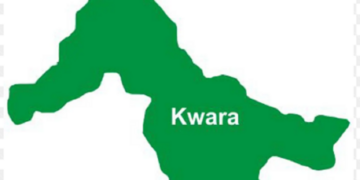Countries across the world, including some of America’s closest allies, have condemned President Donald Trump’s announcement of reciprocal tariffs and some pledged counter-measures while hoping the White House would be open to negotiations.
China urged the United States to immediately cancel its latest tariffs and vowed to safeguard its own interests, threatening to spiral the world’s largest economies deeper into a trade war that is likely to upend global supply chains.
“This is not the act of a friend,” said Prime Minister Anthony Albanese of Australia, a nation often described as America’s “deputy sheriff” in Asia. “The (Trump) administration’s tariffs have no basis in logic and they go against the basis of our two nations’ partnership.”
German chancellor Olaf Scholz urged Europe to provide a united response. “The recent tariff decision by the US President is in my view fundamentally wrong and it is an attack on a trade system that has created prosperity all round the world, itself an American achievement,” he said.
“We want cooperation, not confrontation, and will defend our interests. Europe will respond united, strong and proportionately to this decision,” her added.
The country’s economic minister Robert Habeck went a step further. He said: “Donald Trump buckles under pressure… and this pressure must now be exerted from Germany, from Europe.”
French President Emmanuel Macron warned that Trump’s tariffs will leave American economy ‘weaker and poorer’
Spain’s Prime Minister, Pedro Sanchez, whose country sells large amounts of car parts, steel and chemicals to the US, described the move to bring in reciprocal tariffs on imported goods from the EU as “unintelligent” and “a return to 19th-Century protectionism”.
French Prime Minister Francois Bayrou was more guarded. He said: “It’s an immense difficulty for Europe. I think it’s also a catastrophe for the United States and for US citizens.”
Ireland’s taoiseach Micheal Martin also spoke out against the “deeply regrettable” tariffs. The country’s goods exports to the US surged by a third to £60 billion last year, while its imports from the US fell to £19bn.
“I strongly believe that tariffs benefit no one. My priority, and that of the government, is to protect Irish jobs and the Irish economy,” he said.
Leaders of Sweden, Finland and Italy all emphasised that efforts must be made to avoid a trade war.
“We will do everything we can to work towards an agreement with the United States, with the goal of avoiding a trade war that would inevitably weaken the West in favor of other global players,” Italian prime minister Giorgia Meloni said.
The reciprocal tariffs are set to come in this weekend, giving the world’s leaders just days to respond.
Leaders in Japan, New Zealand, Taiwan and South Korea, all major U.S. allies in the region, blasted Trump’s move. “We need to decide what is best for Japan, and most effective, in a careful but bold and speedy manner,” said Trade Minister Yoji Muto, when asked whether Japan would retaliate.
Trump said on Wednesday that he would impose a 10 percent baseline tariff on all imports to the U.S. and higher duties on dozens of other countries.
Among close U.S. allies, Japan was targeted with a 24 percent rate, South Korea with 25 percent, Taiwan with 32% and the European Union with 20 percent. The UK, Australia, New Zealand, Saudi Arabia and most of South America were let off with the minimum 10 percent.
“The consequences will be dire for millions of people around the world,” said European Commission President Ursula von der Leyen. “We are ready to respond, we are preparing further packages of measures to protect our interests.”
Trump announced China would be hit with a 34 percent tariff, on top of the 20 percent he previously imposed earlier this year, bringing the total new levies to 54 percent and close to the 60 percent figure he had threatened while on the campaign trail.
The U.S. move disregards the balance of interests reached in multilateral trade negotiations over the years and the fact that it has long benefited greatly from international trade, Beijing’s commerce ministry said in a statement. “China firmly opposes this,” it said. “There are no winners in trade wars, and there is no way out for protectionism.”
However, several leaders pressed for talks with the White House, seeking exemptions or a retreat on duties, while von der Leyen said she agreed with Trump that the global trading system had “serious deficiencies”.
Trump is not imposing his new 10 percent global tariff rate on top trading partners Canada and Mexico while his previous order remains in place for up to 25 percent tariffs on many goods from the two countries over border control and fentanyl trafficking issues, the White House said in a fact sheet.
“We are going to fight these tariffs with counter-measures, we are going to protect our workers, and we are going to build the strongest economy in the G7,” said Canadian Prime Minister Mark Carney.
Mexico’s President Claudia Sheinbaum said on Wednesday that Mexico would not pursue a “tit-for-tat on tariffs” but would rather announce a “comprehensive programme” on Thursday.
The government of Latin America’s largest economy, Brazil, which Trump slapped with a 10 percent tariff, said it was “evaluating all possible actions to ensure reciprocity in bilateral trade, including resorting to the World Trade Organisation.”





